Indigenous leaders voice immediate plea for Anthony Albanese to fix crisis in NT schools. Will he listen?
The Albanese government must intervene immediately to fix the NT’s schools funding crisis, says the most authoritative representative body for Aboriginal people in central Australia.
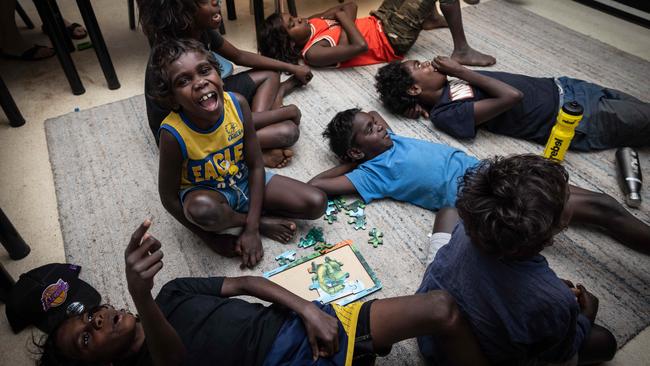
The Albanese government must intervene immediately to fix the Northern Territory’s schools funding crisis, says the most authoritative representative body for Aboriginal people in central Australia.
The Central Land Council’s 90 elected delegates, who represent 24,000 Indigenous people from dozens of remote and regional communities, decided on Thursday at a camp meeting near Uluru to ask the commonwealth to force the NT government to deal with its bloated bureaucracy and start funding its schools properly.
The Australian’s NT Schools in Crisis series has revealed a shortfall of $214.8m a year for Territory schools, which disproportionately affects the country’s most disadvantaged students under the attendance-based funding model that operates nowhere else in the country.
The NT public school system provides no secondary education south of Alice Springs.
CLC chief executive Les Turner on Thursday said: “It is deeply unfair our children have to leave home and become boarders if they want to go to high school – a hurdle that is too high for most.
“This is not a real choice for Aboriginal families.

“This is a clear-cut example of where a voice to parliament would hold governments accountable for the tax dollars they receive and to provide local knowledge and advice that ensures they are spent where they are most needed, and make a difference on the ground.
“We appeal to all Australians to vote Yes so governments can be held accountable for education spending and meet the needs of all our children into the future.”
More than half of the NT education budget is spent on bureaucracy and administration.
The Australian revealed that schools classified as homelands learning centres had gone months without a teacher visit, while others received a visit from a teacher only once or twice a week, with a local assistant teacher left to deliver classes alone the rest of the time.
For every 1000 students in the Territory, the NT education department has 24 non-school staff, compared with nine in the ACT and eight in Tasmania, an analysis by the Australian Education Union has revealed.
A total of 704 staff in the NT education department do not work at schools.
The NT spends on average 20 per cent less on the education of children than the minimum spent on students everywhere else.
“We need federal action to prevent a total collapse of the NT’s remote government education system, which is starved of funds and unable to support the needs of all children,” Mr Turner said.
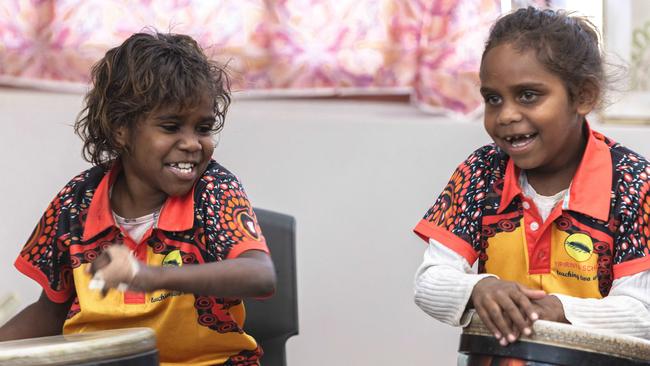
“We call on the Albanese government to bridge the scandalous education gap with an immediate emergency equity package that ensures our students are funded to the same level as students in the rest of the country from the start of next school year.
“It needs to use all levers, including $175m in emergency funding for the next two years, to get the NT government to fund schools based on enrolment from next January.”
The Central Land Council considers the decision by successive Territory governments since 2015 to fund schools based on attendance rather than enrolment a disaster.
The fewer students who turn up, the fewer students that schools can accommodate.
Attendance rates at remote Northern Territory schools are as low as 18.7 per cent and have been falling for a decade.
“Remote government schools currently cannot cope with additional students because they are not able to support them,” Mr Turner said.
“The policy is fuelling a race to the bottom when it comes to attendance and student achievement.”
Federal Education Minister Jason Clare this week said Territory students were the most underfunded in the country, receiving only 80 per cent of the minimum standard recommended under the Gonski reforms.
School attendance is plummeting under the NT’s “effective enrolment” policy, with an average of only 41.2 per cent of students attending at least four days a week in the CLC region, the southern half of the Territory.
“Remote students in government schools are the biggest losers under this policy,” Mr Turner said.
A 2022 review of the NT’s policy by Deloitte’s found that the effective enrolment policy created uncertainty, prevented investment in quality engagement strategies and “led to band-aid solutions to boosting attendance”.
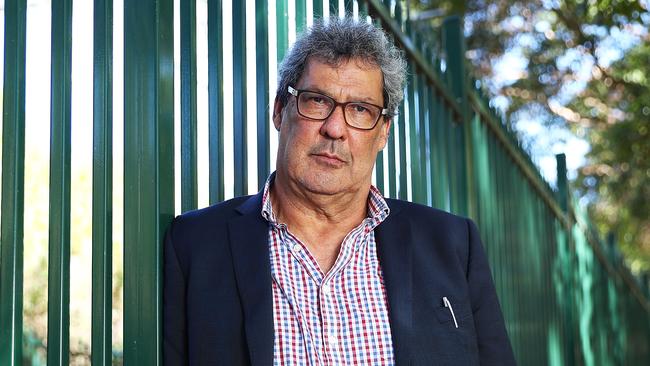
The state of the NT government’s finances, and its spending decisions, have been a cause of serious concern for Indigenous communities for years.
In northeast Arnhem Land, the Yolngu people have begun their own breakaway school in partnership with Barker College in Sydney. The children are learning in second-hand transportable cabins with elders in the classroom. So far, attendance and results are much improved.
Yothu Yindi Foundation chief executive Denise Bowden, who helped establish the independent Dhupuma Barker school with the late Indigenous leader Yunupingu, has previously said the incompetence of the NT government made her blood boil.
“If the Northern Territory government was a corporation, serious thought would have to be given to winding it up,” Ms Bowden said at the Garma festival in 2019.
On Thursday, the federal opposition’s education spokeswoman, Sarah Henderson, said it was untenable that the Albanese government was sitting on its hands.
“We don’t need to wait for the outcome of more reviews or the voice referendum to fix this injustice,” Senator Henderson said.



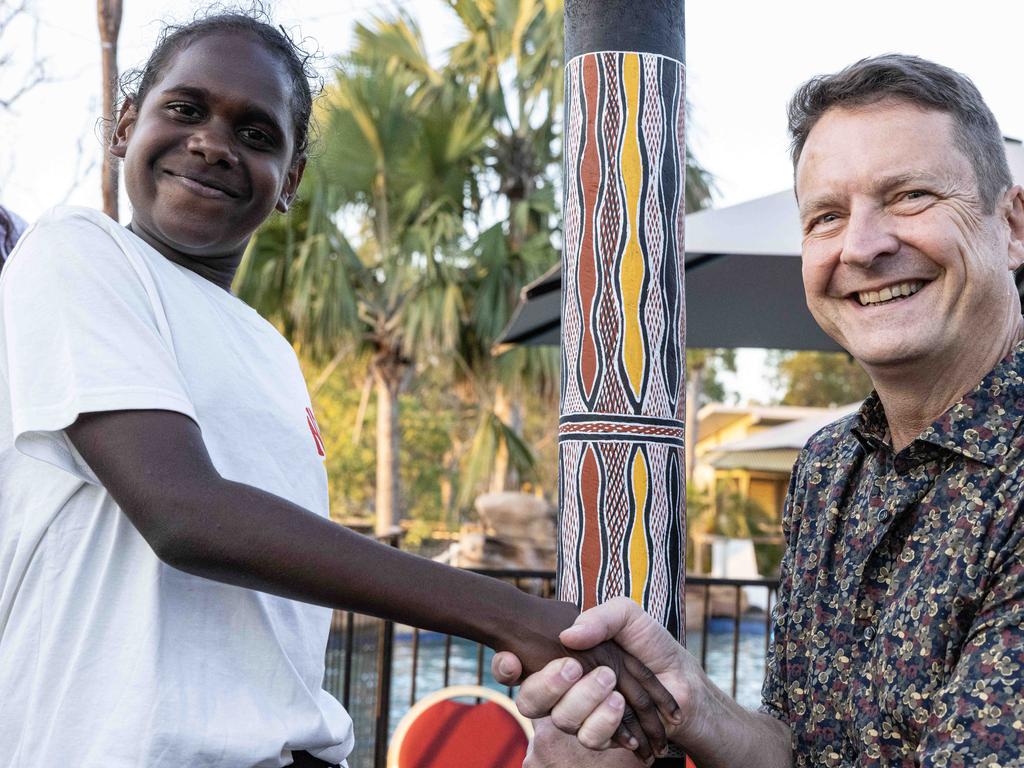



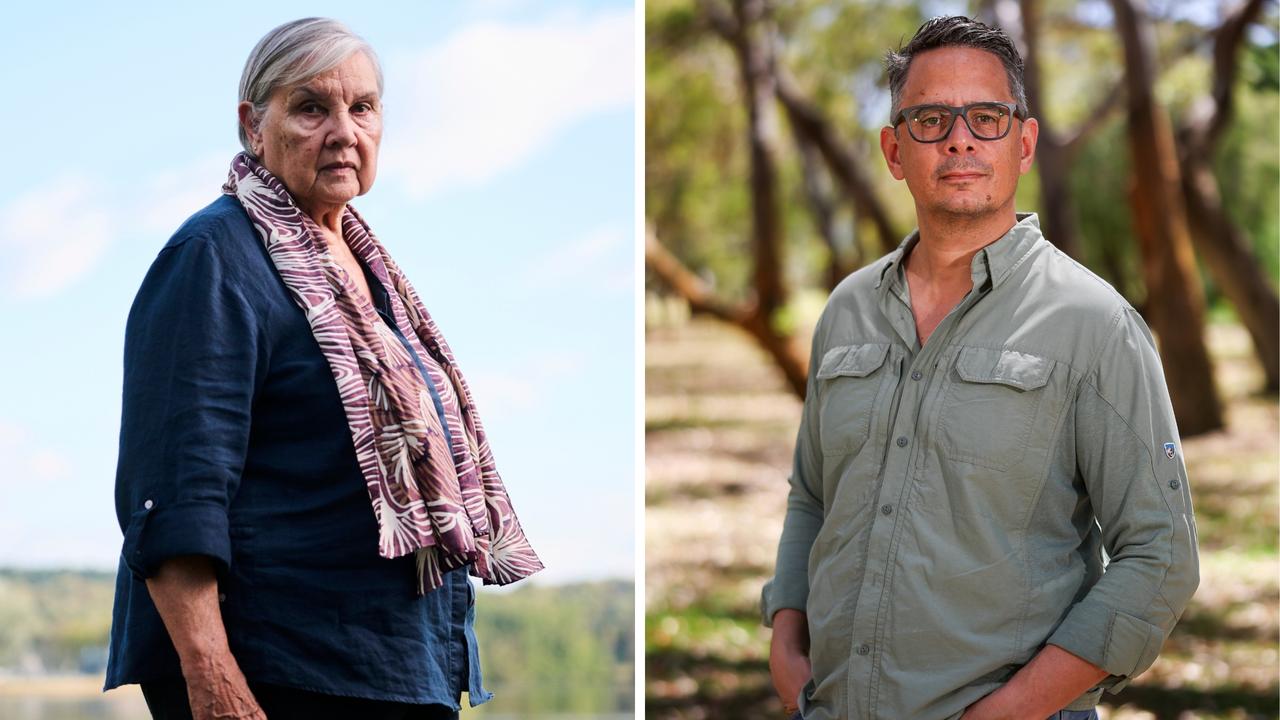
To join the conversation, please log in. Don't have an account? Register
Join the conversation, you are commenting as Logout